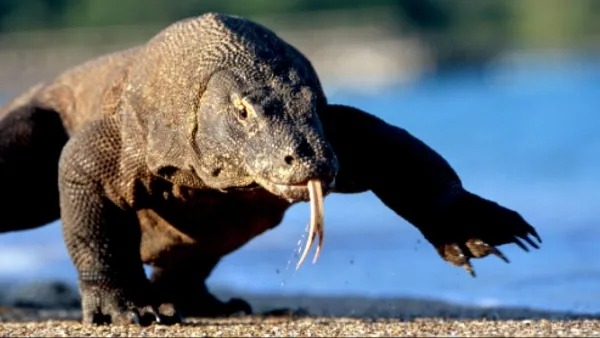
Usually, in any animal or bird, the male and female produce new babies or eggs through physical intercourse. However, you will be surprised to know that there are creatures on earth that can give birth to only one new creature.
In these organisms, only the female gives birth to a new organism. She does not require physical contact with any male to produce babies or eggs.
Komodo Dragon
There are many species of lizards found in the world. The largest living lizard among them is the Komodo Dragon. This lizard found in Indonesia weighs more than 70 kg. Komodo dragon lizards do not require a partner to produce children.
In 2005, a female Komodo dragon at a London zoo laid eggs without a mate. The species reproduces asexually through parthenogenesis.
Virgin
Cancer Virgin Cancer is a species of crabs, scientists observed that only the females of the entire species were able to clone themselves and conceive through asexual reproduction. They do not need any male or female for this.
Sharks
There are many different species of sharks that can conceive through parthenogenesis. The bonnethead shark is the only shark in the world that is both carnivorous and herbivorous. They can conceive without a partner through parthenogenesis.
Blacktip sharks are usually found in tropical regions. It can reproduce in both ways. These sharks can conceive with or without mating.
In 2007 a shark in a US aquarium became pregnant and gave birth to a female baby without coming into contact with any feces. Bamboo sharks and zebra sharks also give birth to clones without coming into contact with males.
Brahminy Blind Snake
The Brahminy blind snake, found in Asia and Africa, usually hides under the ground. All snakes found in this species are females. They reproduce entirely through parthenogenesis.
Crocodile
A female crocodile in a zoo in Costa Rica became pregnant without a male partner and also laid eggs, which contained a complete embryo, genetically identical to its mother. In 2018, this female crocodile laid 14 eggs. 7 of those eggs were capable of becoming embryos. But within three months six of them perished but one survived. A crocodile was born from it.
 look news india
look news india